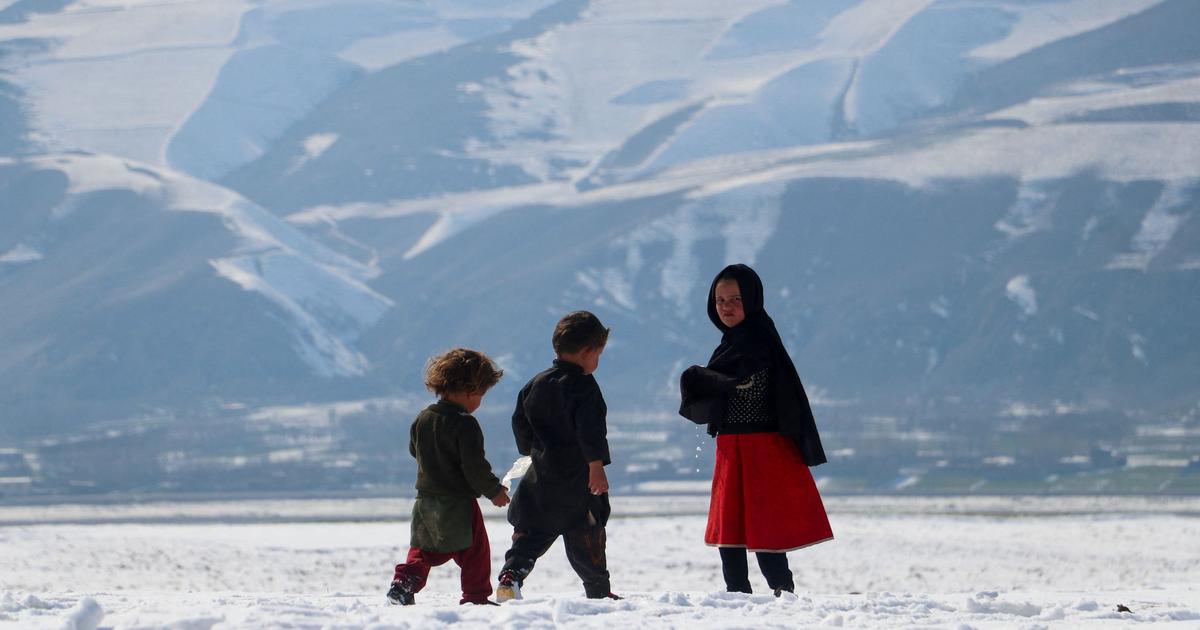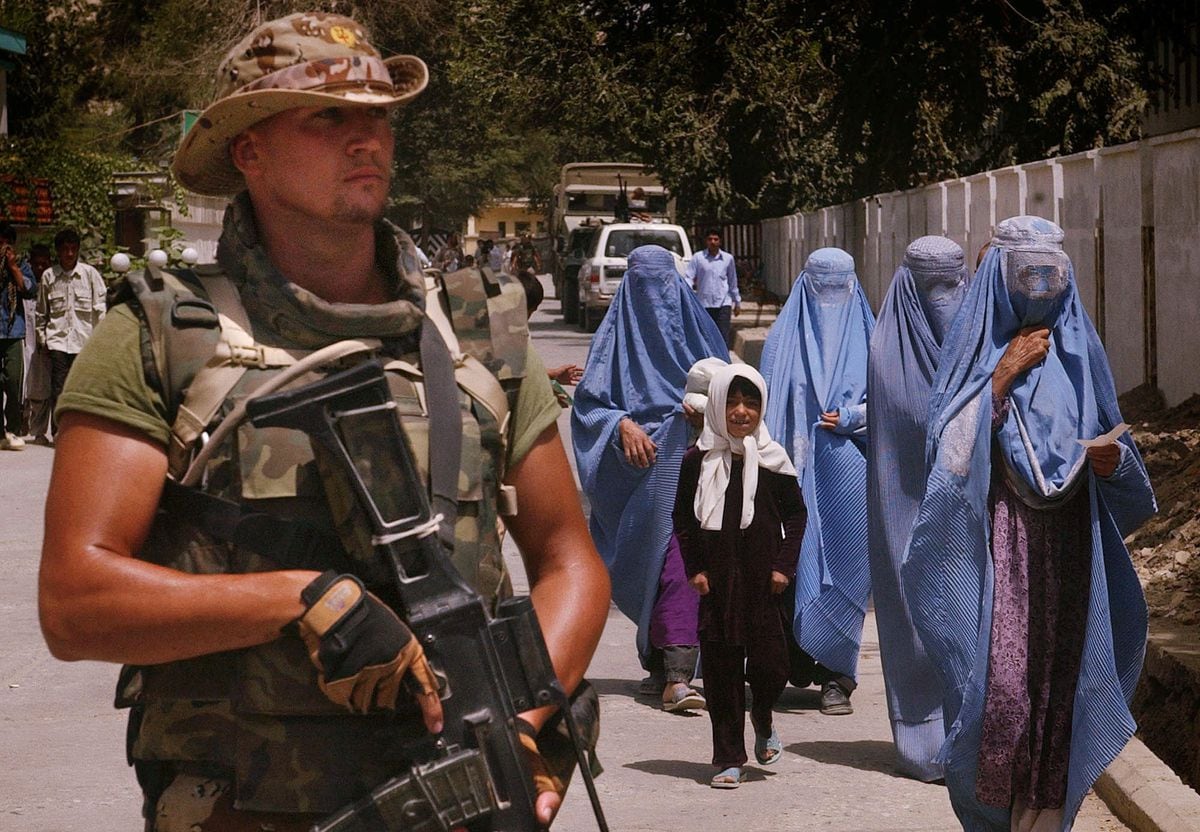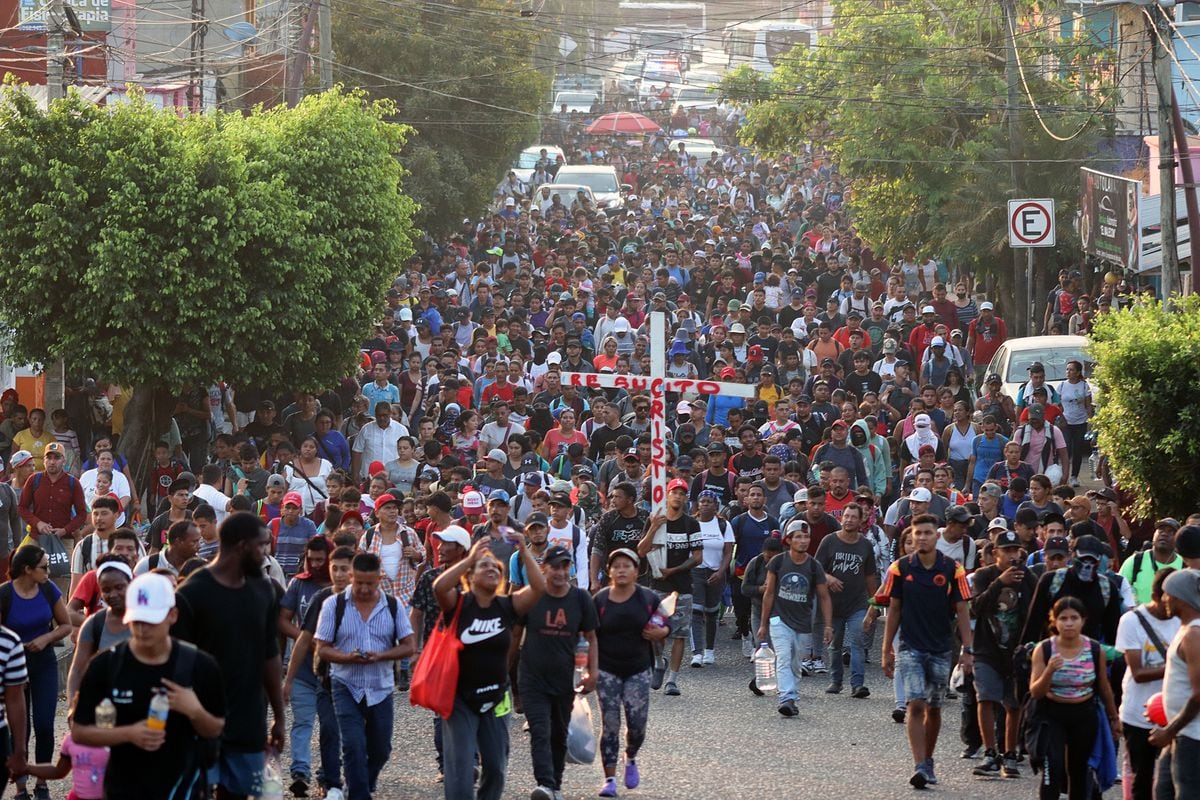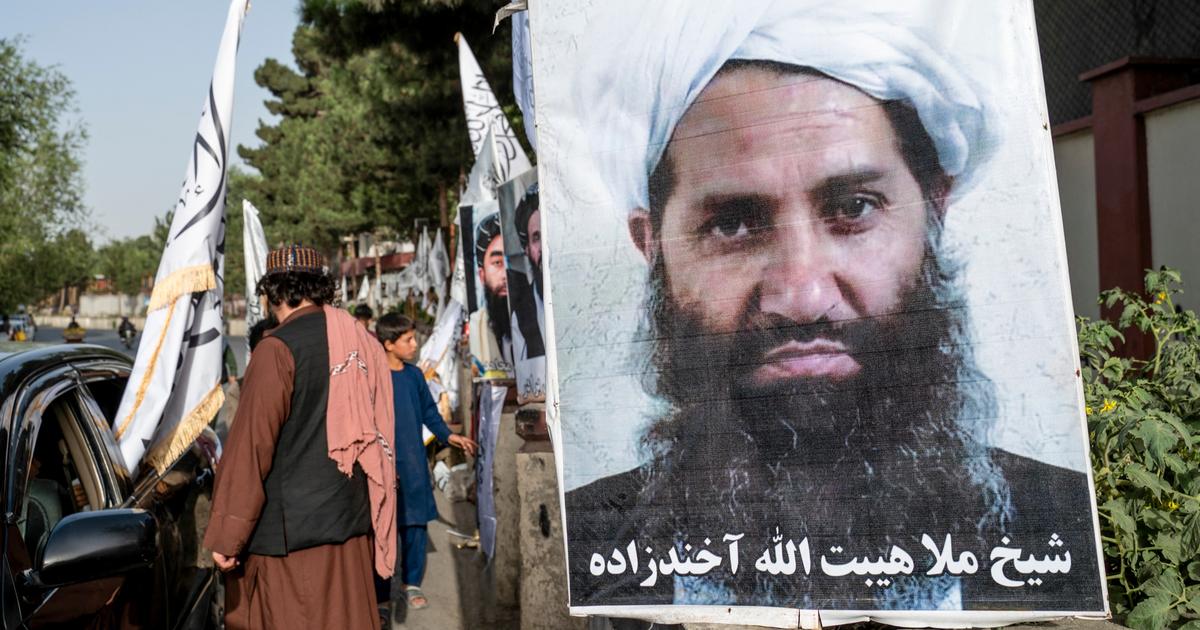The beginning and end of 20 years of war in Afghanistan 4:33
(CNN) -
When the Taliban took back Afghanistan, tens of thousands of civilians decided to flee their homes.
Translators, military contractors, public officials, journalists, human rights activists, employees of foreign NGOs, and many others were suddenly in danger.
Many had direct ties to the United States and its allies and feared that the militant group would seek revenge against them after the American withdrawal.
Others feared that the freedoms they became accustomed to in the past two decades would quickly disappear under the Taliban.
Many felt that the safety of their families was at risk.
More than 120,000 people have been evacuated from Afghanistan since the end of July, according to the White House.
Now that the United States and its allies have completed their airlift missions, it has become clear that many vulnerable Afghans have been left behind.
ANALYSIS |
How did the United States get back to where it started in Afghanistan?
1 of 18
|
People get on a plane at the Kabul airport.
Thousands of people forcibly entered the airport, trying to flee the feared Taliban hard line.
See the most shocking images of the situation in Afghanistan (Credit: WAKIL KOHSAR / AFP via Getty Images) →
2 of 18
|
An American soldier points his gun at an Afghan passenger at the Kabul airport after thousands of people forcibly entered the scene trying to flee (Credit: WAKIL KOHSAR / AFP via Getty Images)
3 of 18
|
Taliban standing guard in a vehicle on a Kabul street (AFP credit via Getty Images)
4 of 18
|
Afghan citizens return to the country after trying to cross the border with Pakistan, after the advance of the Taliban (AFP credit via Getty Images)
5 of 18
|
A crowd of Afghan citizens wait at the airport to flee the country (Credit: SHAKIB RAHMANI / AFP via Getty Images)
6 of 18
|
Afghan security forces soldiers travel in an armed vehicle in Panjshir province (Credit: AHMAD SAHEL ARMAN / AFP via Getty Images)
7 of 18
|
Taliban stand guard in a vehicle on a street in the province of Jalalabad (Credit: AFP via Getty Images)
8 of 18
|
Afghan families displaced in the interior of the country due to the advance of the Taliban (Credit: WAKIL KOHSAR / AFP via Getty Images)
9 of 18
|
Charyar, 70, looks through a fence from a camp for displaced people in Afghanistan (Credit: Paula Bronstein / Getty Images)
10 of 18
|
Displaced citizens wait outside a camp after desperately fleeing their homes in the face of the Taliban advance (Credit: Paula Bronstein / Getty Images)
11 of 18
|
Afghans observe damage caused by fighting between Taliban and Afghan security forces in Kunduz, 8 August 2021
12 of 18
|
A crowd tries to get on a plane in Kabul
13 of 18
|
New satellite images of Maxar showed crowds of people on the runway at Kabul International Airport on Monday (Credit: Satellite image © 2021 Maxar Technologies)
14 of 18
|
New satellite images of Maxar showed crowds of people on the runway at Kabul International Airport on Monday (Credit: Satellite image © 2021 Maxar Technologies)
15 of 18
|
New satellite images of Maxar showed crowds of people on the runway at Kabul International Airport on Monday (Credit: Satellite image © 2021 Maxar Technologies)
16 of 18
|
US soldiers rest after the incidents at the Kabul airport (Credit: WAKIL KOHSAR / AFP via Getty Images)
17 of 18
|
Afghan families wait in the baggage area of Kabul airport after thousands of people entered the area to try to flee the country.
(Credit: WAKIL KOHSAR / AFP via Getty Images)
18 of 18
|
Afghan passengers wait inside a plane to leave Kabul (Credit: WAKIL KOHSAR / AFP via Getty Images)
Some did not get to the airport on time.
Others never had a chance to leave.
Many simply chose to stay and fight for their rights.
Here are stories of some of those who escaped and those who did not.
advertising
"I walked through a drainage canal to get to the airport"
Raihana Raha entered Kabul airport with the help of French soldiers after walking through a drainage canal, knee-deep in sewage.
Days later, in the security of a hotel in Paris, she was still worried that people might smell it.
Raha, a 25-year-old women's rights activist, fled Afghanistan shortly after the Taliban captured Kabul.
He did not sleep at home, but hid at a friend's house.
Once she received her visa, she headed to the airport along with a group of other women in a similar situation.
Raha's road to the airport took her through a sewage canal.
It is still difficult for him to describe what he was thinking during the treacherous three days he spent waiting outside Hamid Karzai International Airport.
"All I could do was, you know, [be] strong and do what I could do ... it was all about opportunities. It was about trying to find an opportunity," he said.
When Raha entered the airport, she realized how quiet it was.
"The people, when they arrived at the airport, they were silent, most of them silent, it seemed that they were thinking about what happened to them, what happened to their country, what happens to their lives, you know, because most of them were the people who were working, the people who had a lot of plans to make their dreams come true, "he told CNN.
He finally realized it on the plane.
She was leaving her country.
"Many people were sitting on the ground, most of the people were crying and I could feel why they were crying, because they were thinking about how they were leaving their country and for what and why they were leaving," he said.
Raha herself says that she doesn't cry very often.
At least not normally.
"It's not easy for me to cry, sometimes in the past when I tried to cry, I couldn't, I don't know why, I just couldn't, but that day, I couldn't stop myself," she said.
"Of course I cried."
Here's what we know about Taliban chiefs, commanders, and spokesmen
"I told my son that the shooting was a celebration"
Rafiullah Stanikzai and his family also spent three days and three nights hiding outside the airport, covering their faces whenever Taliban fighters passed.
At one point, the fighters kicked and threatened him, ordering him to leave.
His 4-year-old son Mohammad was crying, terrified by the near-constant gunfire.
To calm him down, Stanikzai told Mohammad that the shooting was just a celebration.
Stanikzai, a 33-year-old extractor, had previously worked for the Czech unit of the NATO-led security mission in Afghanistan.
He said that, until a few weeks ago, he and his family had a good life in Afghanistan.
His wife Maryam was lecturing at a university and he had a good job.
He said he was eventually escorted through the Taliban checkpoint at the airport by Czech soldiers who then herded him onto a plane he believed he would board.
"And then all of a sudden they left us exactly in front of the plane, saying the plane was full and they didn't give information about any other planes," he said.
'No one has money': under Taliban rule, Afghanistan's banking system collapses
This photo shows Rafiullah Stanikzai and his family being evacuated from Kabul on Thursday, August 19.
The plane took off, Stanikzai and his family went to the runway.
The Czech Republic's defense and foreign ministries told CNN that Stanikzai was ineligible for evacuation because he was barred from the government resettlement program for Afghan contractors in 2013, something Stanikzai said the Czechs never told him, noting. letters of recommendation and other documents that the Czech army provided him.
The family spent another cold night queuing for a spot on a US flight out of Kabul, patiently waiting to pass US passport clearance and a security check.
Eventually they were taken to Qatar, where they spent a few days before being sent to Germany and then to the United States.
I ran to the airport
Peymana Assad recalls seeing hundreds of people surrounding the military convoy that was taking her to safety.
"Boys, women, little boys, girls standing on both sides ... you had three British soldiers on one side, three British soldiers on the other side, pointing guns at these people to prevent them from creating a stampede and running towards the door once the doors were opened to let in convoys, "he told CNN.
Assad, who was visiting his Afghan family from the UK, said neighbors knocked on the door after learning that the Taliban were taking over Kabul.
They told him that he had to leave immediately.
The roads were already completely blocked with people desperately trying to escape and if the Taliban came and took over the district, she would not be able to leave.
Assad was evacuated from Kabul shortly after the Taliban took control of the city.
"That's when I grabbed my carry-on luggage. I went on foot, down the back streets to the main highway to the airport, to the Kabul airport, and I started walking and running," he said.
There were hundreds of people around, all running towards the airport.
"It was just tumult and chaos and panic and total fear," Assad said, recalling a particularly terrifying moment.
"One of the merchants pointed to me and said, 'If the Taliban catch you, they will kill you.'
Assad noticed that she stood out in her elegant Afghan dress and Nike sneakers.
"I looked so different from everyone else. I looked completely strange ... and that just put more fear in my heart and I started walking faster," Assad said.
Hours later, in airport security and about to board the government flight, Assad watched a television in the waiting room.
"The Taliban were in the presidential palace ... the Taliban had taken control of Kabul," he said.
"It is as much my country as theirs"
Unlike many others, Pashtana Durrani, founder and CEO of Learn, a nonprofit organization focused on education and women's rights, never really considered leaving Afghanistan, despite the risks she was taking and what could face.
"There are many people who depend on me ... 7,000 girls still need lessons and if I am not there, they will not receive them, so for me it is very important to fight for their rights ... not all people can leave, not all people have the privilege of leaving, "he told CNN.
Pashtana Durrani, founder and CEO of Learn, a non-profit organization focused on education and women's rights.
The 23-year-old is currently in hiding in Afghanistan, focused on enrolling as many children as possible in digital learning programs, before "things get worse" under the Taliban regime, she said.
"My family forced me to hide, many people are concerned for my safety ... I personally am not afraid of them. It is as much my country as theirs," he said.
Durrani said she is concerned about the safety and future of women and girls.
She questions the Taliban's commitment to protecting her rights.
"They tell us we have to stay home until the Taliban fighters accept women in public spaces ... but what if they never feel comfortable with women, then what, what is the deadline?" He said. .
Durrani, an educated young Afghan woman, said she feels it is her responsibility to stay and challenge the Taliban.
"Right now we defend ourselves. We ask for our rights. It is important. If we do not speak now, we are the educated generation, the next generation will not even be educated ... that is not supposed to happen, not under my command."
I haven't been to work since the Taliban took over
The Taliban ask women not to leave the house 0:42
Meanwhile, in the western city of Herat, a young journalist in her 30s says her life and work have been at a standstill since the Taliban took office.
"The atmosphere is tragic and full of pain and suffering. Before the arrival of the Taliban, I was going to work, but since then it has been a dark day, a dark day for Afghans and Afghan journalists when Herat fell," he told her. to CNN.
The journalist said that she had not gone to work since the Taliban seized Herat.
"Our local newspaper is on hiatus and we are not printing anything. [The] Taliban have asked women to stay home. The same is true with schools. Schools are functioning but not with the same quality as before. future is unclear. "
The arrival of the Taliban, he said, had changed everything.
"I am thinking about my future every second of the day. I have two children, what will happen to their future? Will they be safe? Will they be alive? Will the Taliban start murders and executions as before? In cages?" He said.
Afghanistan

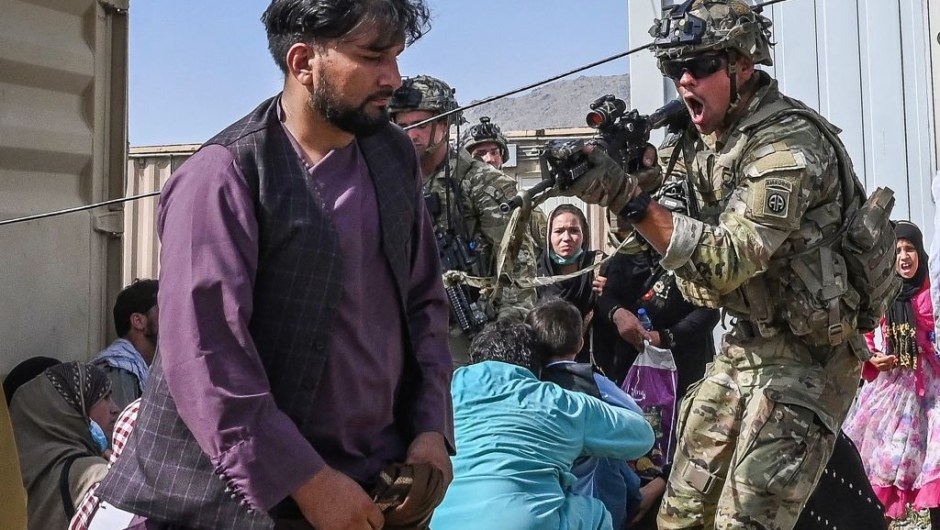

/cloudfront-eu-central-1.images.arcpublishing.com/prisa/KA3LQ5ZEAFEQXOIZXJEEVDUZUQ.jpg)
